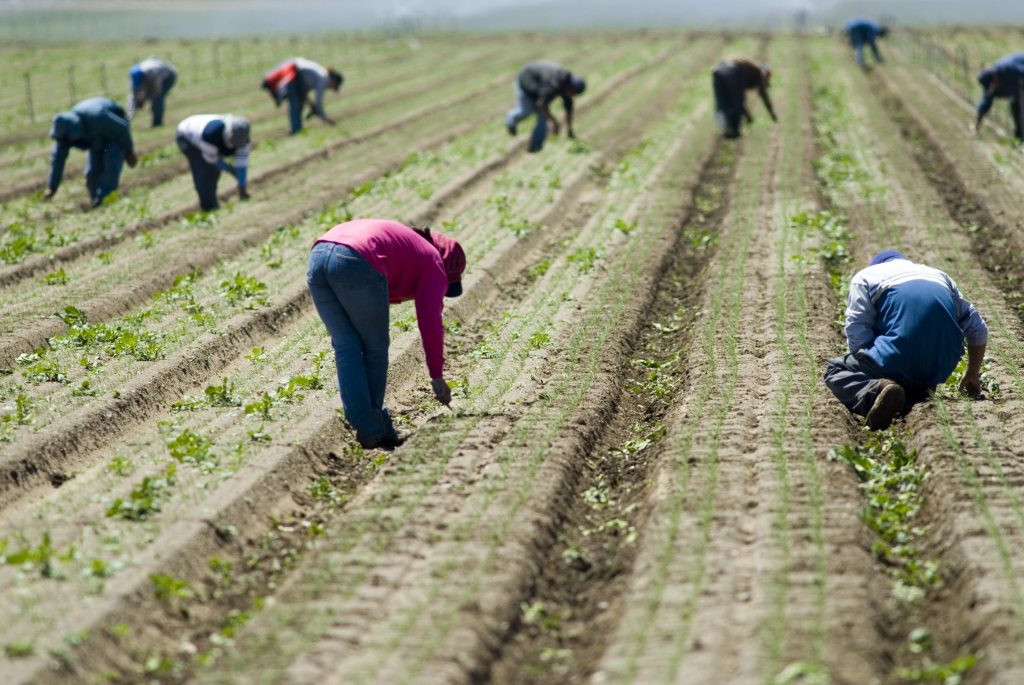
Several produce organizations, including the Georgia Fruit and Vegetable Growers Association, Florida Fruit and Vegetable Association and the Florida Tomato Exchange, issued a letter to legislative leaders in defense of accusations regarding the treatment of farm workers, amid COVID-19.
The letter was sent to Mitch McConnell, Senate Majority Leader; Nancy Pelosi, Speaker of the House; Charles Schumer, Senate Minority Leader; and Kevin McCarthy, House Minority Leader.
The joint letter reads as follows:
May 1, 2020
Dear Leader McConnell, Speaker Pelosi, Leader Schumer, and Leader McCarthy:
The fresh produce industry is committed to the safety of our workers, whether harvest crews in the field or employees in packing facilities, all while keeping the food supply chain moving. We are an essential part of feeding American consumers and the world at a time when our healthy fruits and vegetables are more in need than ever.
Recent accusations regarding the employee protections in agriculture are unfounded. With every stage of the emerging COVID-19 crisis, our industry has worked hard to embrace all public health advice for social distancing, personal and facility hygiene, face coverings and more. While there is no specific guidance for farms from the CDC, OSHA or FDA as of yet, producers have implemented protocols based on general guidance from these agencies, as well as USDA and state and local public health and agriculture officials. Some of these recommendations that have been implemented include but are not limited to those referenced here:
- Centers for Disease Control[1],[2],
- Occupational Safety and Health Administration[3],[4],
- Department of Labor[5],
- Department of Homeland Security[6] ,
- Food and Drug Administration[7]
- U.S. Department of Agriculture[8]
These efforts have resulted in changes to operations across the country in order to keep our workers safe while bringing food to the American people.
Furthermore, beyond the government guidance mentioned above, the produce industry has enhanced these government recommendations and provided our strongest commitment to workforce safety:
- Produce employers have partnered with hospitals and health care officials to create a program where doctors and nurses visit worksites to discuss COVID-19 risks and provide educational services.
- Grower organizations have sponsored Public Service Announcements in English, Spanish and other languages in communities with a high density of agricultural workers advising them about the proper safety steps to take not only on the job but in their communities.
- Industry organizations have partnered with state extension service to produce educational videos and material in English and Spanish for workers to educate them about proper sanitation and healthcare practices.
- Grower groups have partnered with worker advocates to develop guidelines for strong state enforcement of workplace and housing standards.
- Beyond our farms and our own employee housing, companies are providing workers advice on in-home sanitation, social distancing, and recuperative services.
These steps reflect our continued commitment to the safety and well-being of our employees, the safety of the products they harvest, and the health of all Americans who must continue to consume healthy foods as part of our public health fight back against this virus. Without a safe and healthy work force, we could not continue to meet that challenge.
Going forward, we will continually update our safety protocols in accordance with all government guidance. We also look forward to working with lawmakers on both sides of aisle and with the administration to ensure a safe workplace for our employees and a safe and abundant food supply for our country. In that regard, we note that we need to secure additional personal protective equipment – farmers have some reserves of these supplies but as this crisis lingers, we are concerned about the ability to secure supplies in the future.
Sincerely
United Fresh Produce Association, Western Growers Association, National Potato Council, National Watermelon Association, US Apple Association, Florida Fruit and Vegetable Association, Georgia Fruit and Vegetable Growers Association, Florida Tomato Exchange, Northwest Horticultural Society, California Farm Bureau, National Council of Agricultural Employers
[1] https://www.cdc.gov/coronavirus/2019-ncov/community/critical-workers/implementing-safety-practices.html
[2] https://www.cdc.gov/coronavirus/2019-ncov/daily-life-coping/shared-housing/index.html
[3] https://www.osha.gov/Publications/OSHA3990.pdf
[4] https://www.osha.gov/SLTC/covid-19/standards.html
[5] https://www.usda.gov/media/press-releases/2020/03/19/usda-and-dol-announce-information-sharing-assist-h-2a-employers
[6]https://www.cisa.gov/sites/default/files/publications/Version_3.0_CISA_Guidance_on_Essential_Critical_Infrastructure_Workers_4.pdf
[7] https://www.fda.gov/food/food-safety-during-emergencies/food-safety-and-coronavirus-disease-2019-covid-19
[8] https://www.rd.usda.gov/coronavirus (multifamily housing FAQ)









